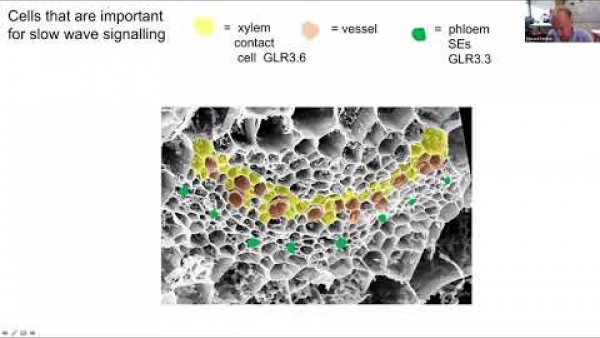RESCHEDULED PS Seminar Series: Xylem - phloem interactions during electrical signalling in wounded plants
Abstract: Slow wave potentials propagate from sites of damage to distal leaves in wounded plants. This process requires GLR genes that are expressed both on the phloem and in the xylem. We found that the ability to propagate slow wave potentials was unexpectedly robust and was maintained in plants that had experienced severe damage. We sought genes that help the plant to maintain tissue excitability during insect attack. When the Arabidopsis Auto-inhibited Ca2+-ATPase (ACA) double mutant aca10 aca12 was attacked by lepidopteran herbivores, electrical signaling failed catastrophically. A phloem-feeding aphid recapitulated these effects, implicating the vasculature in electrical signaling failure. We expressed the ACA10 gene in the mutant background in phloem companion cells or in xylem contact cells in the double mutant background. Results from these experiments were consistent with roles of both the phloem and xylem in electrical signaling maintenance under severe stress. To further investigate xylem-phloem interactions using a different approach we developed a method that allows us to feed potential chemical elicitors of electrical signaling into xylem vessels and to simultaneously measure electrical activity in phloem sieve element cells.
Biography: After a PhD studying the regulation of glycolysis in heart tissue, Ted Farmer switched fields to plant defense biology. Working with Clarence Ryan in the USA, Farmer found that jasmonate controls the expression of wound-response genes. He then established his own lab in the Department of Plant Molecular Biology at the University of Lausanne, Switzerland. Over the last decade or so the laboratory has been combining genetics, cell biology and electrophysiology in an attempt to understand the mechanism of wound-response electrical signalling.









